
By Judy Carmack Bross
To celebrate the role that people of all ages play to fuel innovation in the workforce and society, Chicago Innovation and The Village Chicago recently presented “A Night for the Ages,” underscoring the power of age as a catalyst for growth and progress. As Tom Kuczmarski, co-founder of Chicago Innovation said: “Our Ageless Innovators programs tackle ageism at its core – by enabling two different generations to gain understanding, insights, and empathy –by co-mentoring each other.”
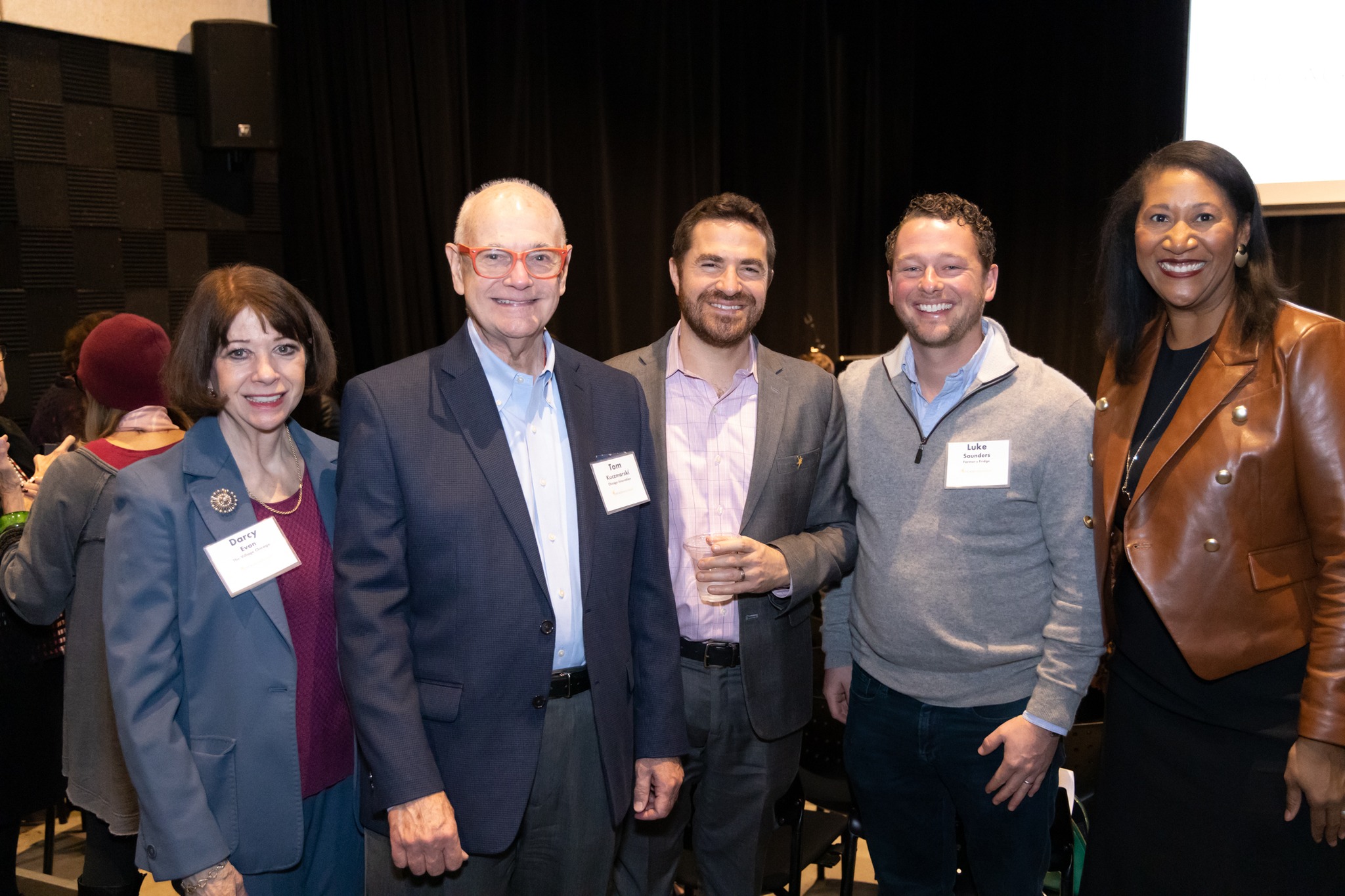
Darcy Evon, Tom Kuczmarski, Luke Tanen, Luke Saunders, Dorri McWhorter
“The event attracted three times as many people as the May kickoff for the project,” The Village Chicago CEO Darcy Evon told us. “People were talking about age inclusion in an entirely new way. We have a lot more work to do, but we are thrilled with the progress.”
Evon also noted that the program was just given funds for a second year. “Working with Chicago Innovation is a dream partnership. The Village Chicago has the expertise of working with older adults, and Chicago Innovation has this huge community of innovators of all ages.”

Darcy Evon, President of The Village |

Luke Tanen, President and CEO of Chicago Innovation |
Luke Tanen, President and CEO of Chicago Innovation, the 40,000 plus community which educates, connects and celebrates innovators, told us: “We have learned that teamwork is everything. Having better and more diverse teams creates better solutions than when older people were barred from the table. Different perspectives bring better solutions. Ageism should be part of DEI discussions, it is probably the most unconscious of biases.”
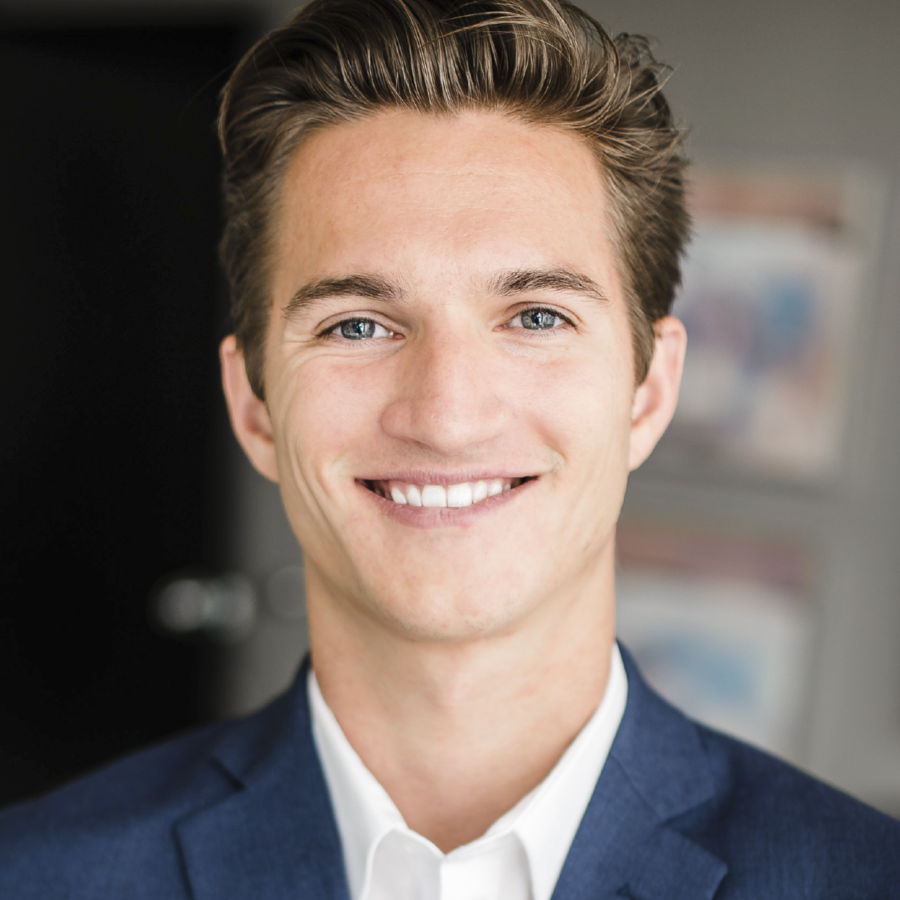
Paul Kitti, Vice President of Marketing and Events
Paul Kitti, Vice President of Marketing and Events for Chicago Innovation, told us that they have sponsored events focusing in on ageism since 2018. “We have to learn to value older adults in the marketplace. HR departments will put out job searches seeking those ‘four to six years of experience’, what about those with say 39 years of experience—they will think that the job is not for them. When there is forced retirement often so much experience walks out the door, and the benefits of many years of experience will be missed.”
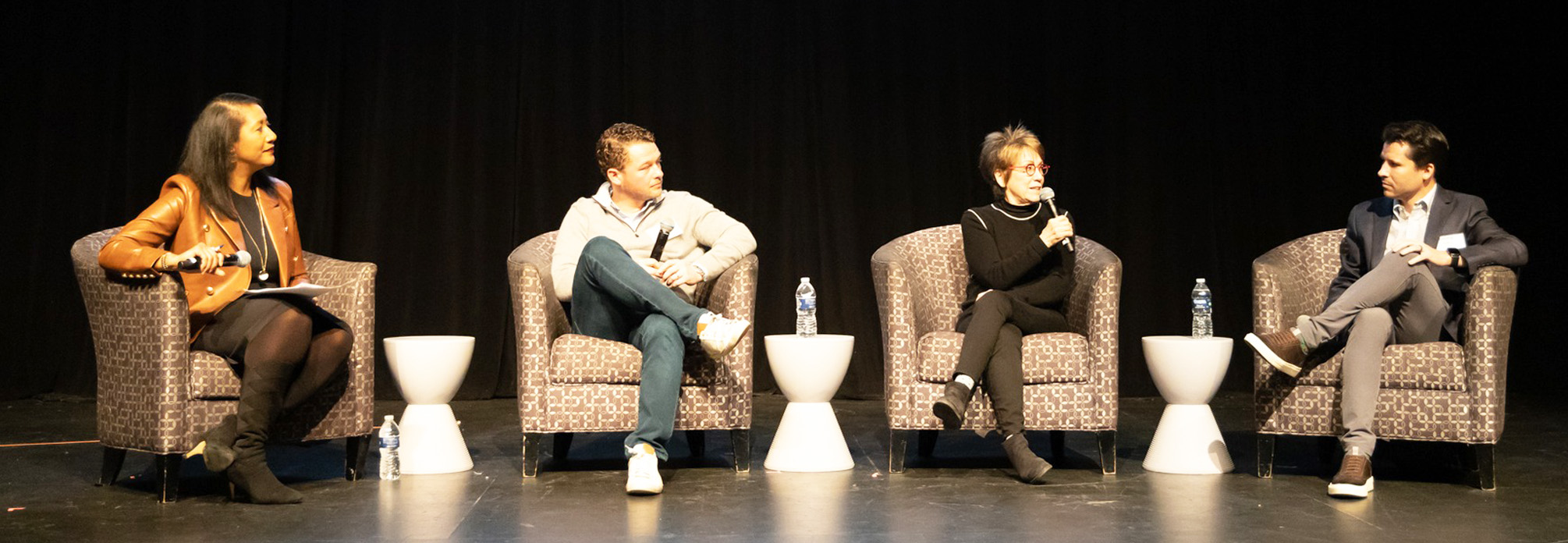
left to right: Dorri McWhorter, Luke Saunders, Barbara Gaines, Jimmy Zollo
A provocative panel discussion featuring Chicago leaders from their 20’s to their 70’s, including Barbara Gaines, founder of Chicago Shakespeare Theater, Jimmy Zollo, Founder and CEO of Joe & Bella, Luke Saunders, Founder and CEO of Farmer’s Fridge, and Dorri McWhorter, CEO of the YMCA of Metropolitan Chicago, focused on how to harness the power of age as a way to unlock new perspectives, build better teams, and create a transformative outlook on life.
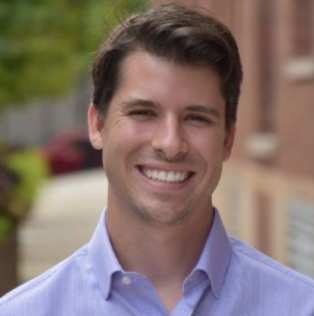
Jimmy Zolo |

Dorri McWorter |

Luke Sanders |

Barbara Gaines

Podcasters Gail Zelitzky and Catherine Marineau
Gail Zelitzky and Catherine Marienau present a weekly podcast, entitled “Women Over 70”, featuring over 200 interviews of women from 70 to 100 plus, already downloaded by over 200,000 listeners.
“I see our work as an affirmation that women don’t become invisible after a certain age. We showcase the vital, spirited and inspiring women who are front and center in today’s world,” Zelitzky said. “There’s not a set criteria of who we interview. Some women are working, some volunteering, some concentrating in health and wellness, others are creative—writing, painting or singing. What cuts across all interviews is their curiosity and desire to keep learning. They are realistic about the aging process but say ‘let’s keep moving by being engaged’.”
We asked Marienau about common threads in the podcasts:
“Find out what matters most to you, what it is you most want to pursue? Stop asking what if it doesn’t work, just do it. Draw on your talents and take risks,” Marienau said.
“Having young people in your life is also important—not just grandchildren—but younger people in the workplace, younger friends you can meet,” Zelitzky said. “There are common issues across the generations. For younger women, a woman over 70 is not just ‘some nice lady who pampers us’ but a person with wisdom to share.”
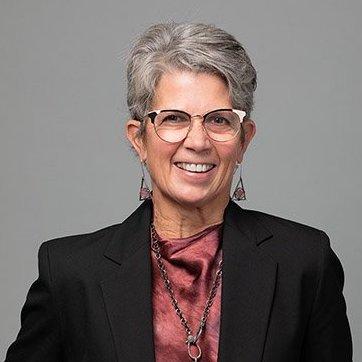
Patti Temple Rocks
Patti Temple Rocks, author of I’m Not Done: It’s Time to Talk About Ageism in the Workplace, also received the Turn the Page on Age Award. For its investigation of insidious and widespread discrimination, INC Magazine ranked it “one of the nine books every professional should read.”
Rocks, a Geneva, Illinois native who has had an over 40-year career in marketing, told us: “it is often the subtle things that are the most insidious.”
“For many companies, it is not the obvious things that leave a person feeling their value has been diminished. The person might no longer be invited to certain meetings, or no longer be a part of decision making. The employer can’t just say ‘you’re old, you’re fired’ but these subtle techniques create a very damaging self-doubt. It can become a viscous circle and the person begins to feel they are not contributing. There is one word to describe it: Invisible. The person feels that way and it is very hurtful.”
Rocks believes that retirement is something people don’t discuss. “People are afraid to bring it up for fear that employers will think they are not committed or might not give them their bonus.
We talk a lot about the hiring process but we should force conversation about retirement, there’s a real lack of transparency,” she said. “I was recently interviewed by two DePaul graduate students interested in age diversity. “They both had two working parents who love their jobs. One parent was being pushed out of a job, probably because of ageism. They saw and respected the problem instantly.”
We asked Evon why new ways of thinking about age are necessary as we enter a new year. She told us:
“People with positive age views live an average of 7.5 years longer and perform 30 percent better on memory tests, according to Becca Levy. Ageism costs $63 billion annually in healthcare costs, including overprescribing of drugs, missing appropriate diagnosis and poor age beliefs, according to Tracey Gedron PhD,” she said.
Evon also added: “There are 10,000 baby boomers a day turning 65 and many would like to continue working if their employers allowed them to continue. Over time we have turned retirement into a source of profit, socially forcing people to retire often before they are ready. Professional service firms routinely require people to retire at 6l, 62 or 65 when they could be active and contributing well into their 70’s. The most cost effective way to create an anti-ageist workplace is to promote age diverse work teams of younger and older workers.”
Zelitzky gave an example of ageless innovation:
“We interviewed an art creator who would be close to 100 now. She does huge installations around social issues, such as the holocaust. When she became confined to a wheelchair she found she couldn’t do it all herself, and she hired someone to help her. But these were still her powerful ideas, ideas still in her head.”
Rocks gives much credit to Chicago Innovation. “You might expect this focus on ageism from an organization such as AARP but to see this acknowledgement that innovation can come from any age is enormous. They have gone a long way in destroying the myths of ageism.”
For further information about the work being done by The Village Chicago and Chicago Innovation to combat ageism, visit https://thevillagechicago.org/ and https://chicagoinnovation.com/.







